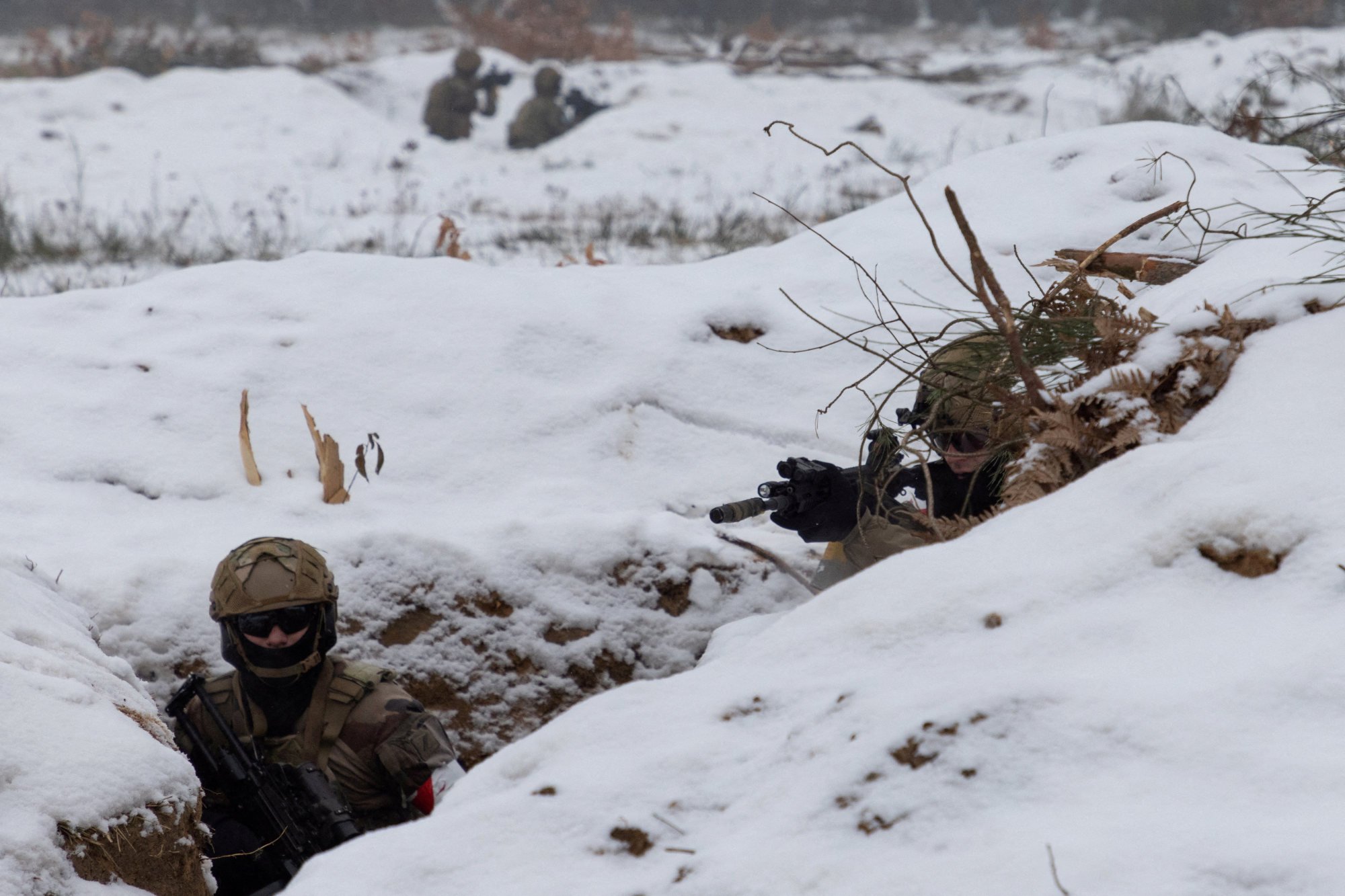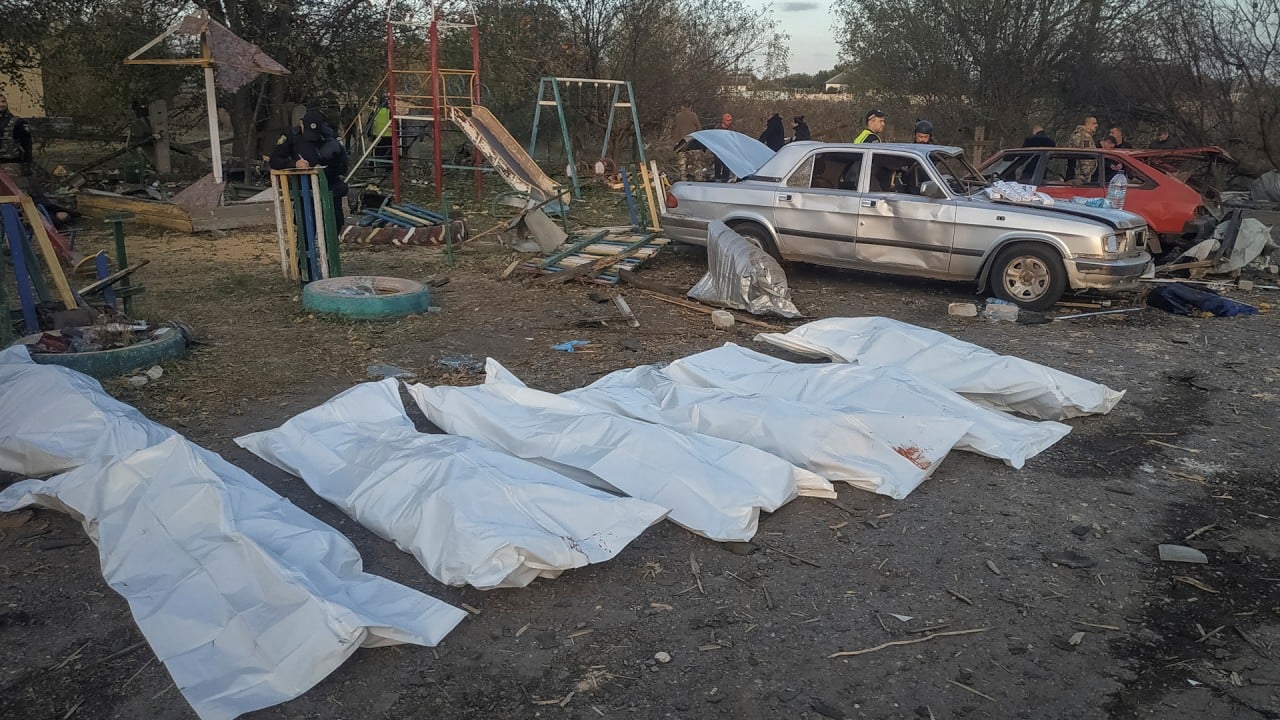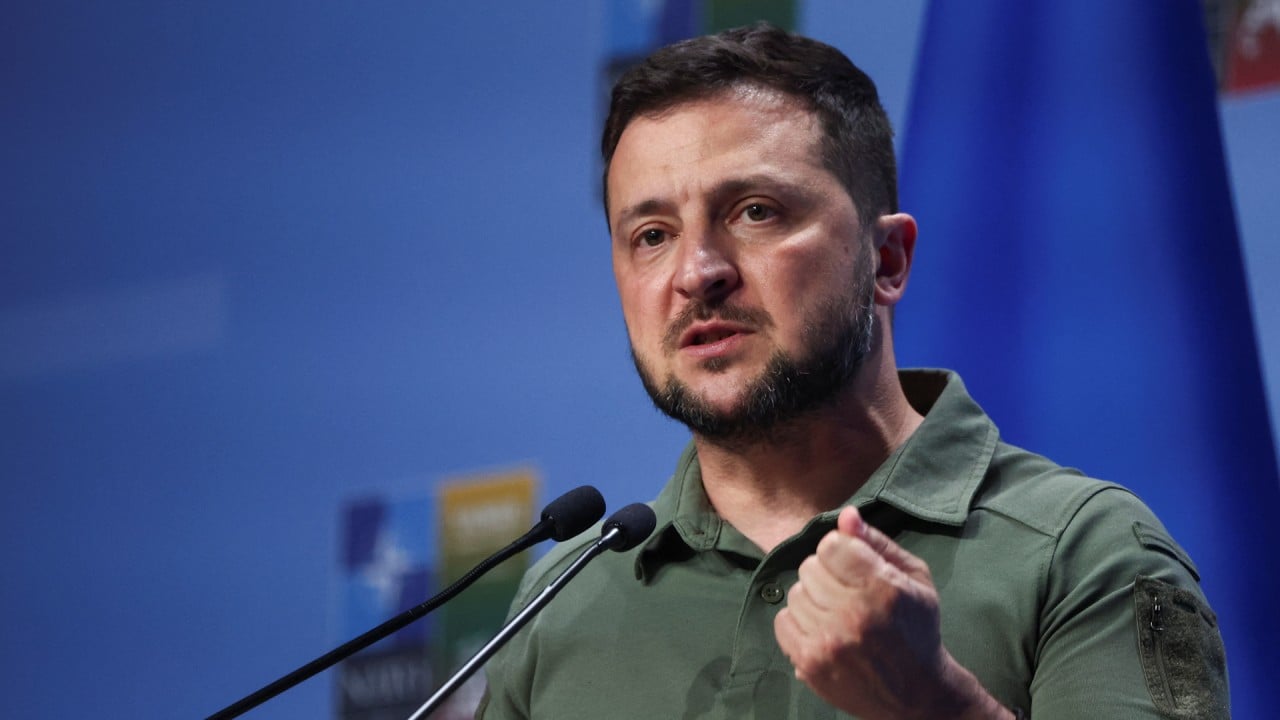
Could US exhaustion over support for Ukraine hasten war’s resolution?
- Kyiv’s failed summer counteroffensive, Republicans holding up funding and the possibility of their candidate winning the 2024 presidential election do not bode well for continuing US support
- This, plus the Israel-Gaza war taking the focus off the European conflict, could prompt Ukraine to re-engage in the peace process
Republican House Speaker Mike Johnson’s recent ultimatum, linking his party’s backing to comprehensive border security reform, has heightened the risk of dwindling aid to Ukraine. The deadlock in Congress has become a pivotal factor as the prospect of American assistance drying up gains traction.
She divulged that the United States is running out of time and financial resources to support Ukraine in its conflict with Russia. Young warned that, by the end of the year, the US will find itself depleted of the means to procure additional weaponry and equipment for Ukraine, including tapping into existing military stocks.
The matter of providing aid to Ukraine, a critical foreign policy concern for the White House, is increasingly emerging as a potent factor in American politics. Johnson’s strategic manoeuvring underscores how geopolitical issues can be cynically manipulated within the framework of partisan politics.
Young’s letter communicated that, as of mid-November, the Department of Defence had spent 97 per cent of the allocated US$62.3 billion in supplementary funding. Concurrently, the State Department had utilised all the US$4.7 billion of its designated military aid funds.
The House’s reluctance to entertain the funding request raises the spectre that approval for financial support for Kyiv may remain elusive. With the Republicans – some of whom are opposed to US entanglement in the Russia-Ukraine conflict – controlling the House, the prospects of the budget being approved appear slim.
The New York Times, in late September, delivered a reality check: “When both sides’ gains are added up, Russia now controls nearly 200 square miles more territory in Ukraine compared with the start of the year.”

This unexpected outcome stands in stark contrast to the expectations of Ukraine and its Western allies. The strategic miscalculations on both sides have played a decisive role in steering the conflict towards this stalemate. The high financial, physical and strategic toll of the summer counteroffensive means the prospect of another large-scale Ukranian push seems unlikely.
The evolving dynamics on the ground necessitate a reassessment of strategies and a cautious exploration of diplomatic avenues.
Ukraine’s Zelensky heads to Argentina, hoping to win Global South’s support
Ukraine, caught in the crossfire of partisan struggles, is unwittingly becoming a sacrificial pawn for larger political machinations within the US. It’s fate is now tied not only to the conflict on its soil but also the power struggles within America.
This intertwining of foreign policy decisions with domestic political imperatives poses a serious challenge to the principled and strategic handling of international crises.
As the year draws to a close, the denouement of the Ukraine conflict becomes increasingly uncertain. The need of countries to strike a delicate balance between global responsibilities and domestic imperatives raises profound questions about the nature of contemporary geopolitical engagements and the cost stakeholders are willing to pay, both internationally and domestically, in pursuit of their strategic objectives.
Building credibility within an alliance takes time, but the fragility of these relationships implies they can be eroded much faster than they are built. The Ukrainian conflict stands as a poignant global tragedy, underscoring the need for responsible actors to unite in a concerted effort to bring about its resolution.
Until recently, such a collective endeavour seemed politically implausible, given the US’ desire to inflict a strategic setback on Russia. However, the landscape has shifted in the wake of the summer counteroffensive’s failure and the subsequent deadlock in Congress, tempering America’s once-ambitious goals. Moreover, the conflict between Hamas and Israel has also contributed to pushing the Ukraine crisis further into the background.
Anticipating the eventual outcome is difficult, considering the complexity of the situation. However, it is plausible that diminishing support from the US, both financially and militarily, may prompt Ukraine to reconsider its stance and re-engage in the peace process.
Dr Imran Khalid is a freelance contributor based in Karachi, Pakistan



